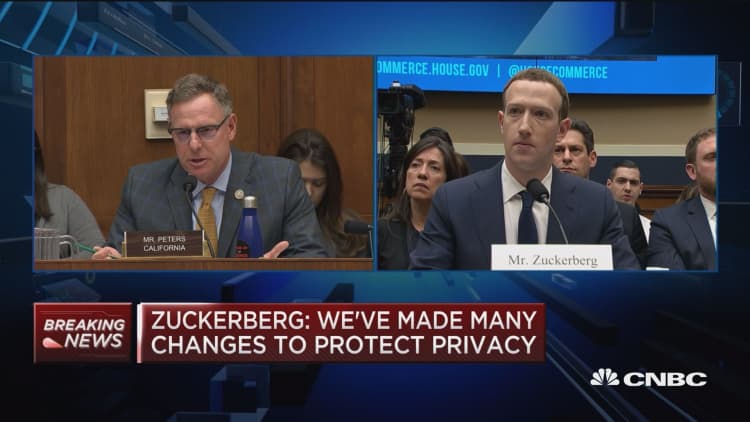Big tech firms such as Facebook could inadvertently benefit from new European privacy rules aimed at strengthening consumer control over personal data.
Speaking to CNBC's "Street Signs," Cenkos Securities analyst Alex DeGroote said consumers will spend more time on Facebook's homepage or newsfeed because they will be less inclined to accept consent from a page that they don't know or trust.
"What will probably happen is that big portals and big platforms will benefit from this, which is not the intention," DeGroote said. "The intention was not to strengthen the market position of the Facebooks of this world. But that's what will probably happen."
The new EU legislation, General Data Protection Regulation (GDPR), comes into force on May 25 and aims to give consumers control of their personal data.
Tech companies must explicitly ask consumers for consent on sharing their data. Companies will not be able to use vague or confusing statements to get consumers to agree to data sharing, and firms won't be able to bundle consent for different things together either and consent must also be easy to withdraw. For children under 16, a person holding "parental responsibility" must opt-in to data collection on their behalf. Consumers will be able to access the personal data being stored by companies and find out where and for what purpose it is being used.
An organization in breach of the GDPR law will be fined up to 4 percent of annual global turnover or 20 million euros ($24.6 million), whichever is higher.

Facebook Product Management Director David Baser said in a blog post Monday that the company collects and receives information about people even if they're logged out or don't have a an account. "This is because other apps and sites don't know who is using Facebook," he wrote.
Baser said Facebook collects information including your computer's IP address, the type of browser you're using to access the internet, the software your computer runs (Android, macOS, Windows, iOS, etc.), and other material.

